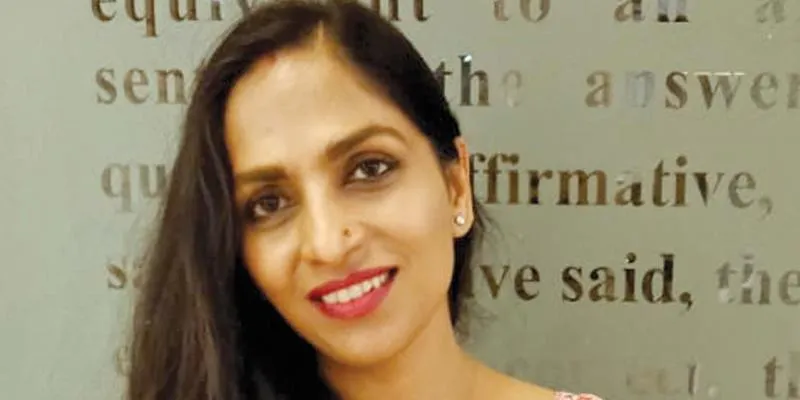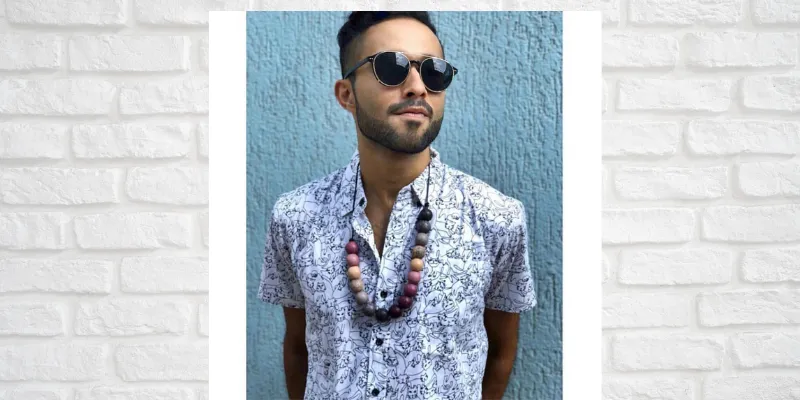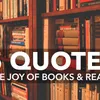World Book Day: Join live sessions with authors to chat about food, movies, travel, and poetry
If you are a book lover get ready for a digital book feast coming your way as a World Book Day jam takes place on Instagram .
When you look back, some of your best adventures in life may have been through the pages of a book. Whether it was hunting the white whale aboard the Pequod, rafting down the Mississippi River with Huckleberry Finn, climbing the Alps with Heidi or getting into high jinks with the March sisters, there are many wonderful memories associated with books for most readers.

Some of our best memories are associated with the books we have read over the years
World Book Day is an annual event organised by the United Nations Educational, Scientific and Cultural Organization (UNESCO) to promote reading, publishing, and copyright. The first World Book Day was celebrated on 23 April 1995, and it continues to be commemorated on that day.
World Book Day is all set to go digital this year due to the coronavirus epidemic, but you could look out for all the special digital events and discounted e-book giveaways that could be a part of the celebrations globally.
HarperCollins India will be celebrating a World Book Day Jam on their Instagram page – @HarperCollinsIN – which will have a series of live author sessions, making for a perfect booklover’s day in, during the lockdown.
The day long activity will feature live sessions on various topics - including food, music, travel, poetry, nostalgia for a city, love, relationships plus reading recommendations among others - and will be led by a whole host of popular and bestselling authors.
Some of these authors include Ravinder Singh, Nikita Singh, Siddharth Dhanvant Shanghavi, Rana Safvi, Boria Majumdar, Nalin Mehta, Meghand S, Soumya Bhattacharya, Kavitha Buggana, Aniruddha Mahale, Rehana Munir, Anukrti Upadhyay, Vivek Tejuja along with food blogger and baker, Shivesh Bhatia, singer-composer and now writer, Anmol Malik, and poet-writers, Sharanya Manivannan and Aditi Angiras.
The sessions will not just have the authors talk on different relatable themes, drawn from their areas of expertise, but will also allow audiences to post questions and interact further with their favourite authors.
In an interaction with YSWeekender, authors, Anukrti Upadhyay and Aniruddha Mahale, who will be a part of the event, spoke about the significance of World Book Day and what the world should be reading during these times of the coronavirus…
YSWeekender: What is the significance of World Book Day?

Anukrti Upadhyay
Anukrti Upadhyay: As a book lover and a compulsive reader, every day is a book day for me. However, I do recognise the importance of celebrating World Book Day to bring books to the centre of the culturescape.

Aniruddha Mahale
Aniruddha Mahale: For a world that's obsessed with social media and virtual validation, I feel that World Book Day is a reminder that sometimes true happiness can indeed be found between words and lines, or sometimes, even pages. I think of it as a one-way ticket to wherever you wish to be. Plus, it helps that a book is a lot cheaper than a vacation to the Bahamas.
YSW: Why is reading so important, even during these times of Netflix, Amazon Prime and YouTube?
AU: Reading is a layered activity involving construing, imagining, visualising. It opens new worlds in a way that is far more subtle than watching a movie. I read that according to an ongoing study reading gives brain more time to stop, think, process and imagine the narrative than viewing a screen.
YSW: Which books would you say have enriched your life?
AM: Margaret Atwood's 'Blind Assassin' is the most vibrant example of great storytelling. There's a story within a story within a story; it's like Christopher Nolan's Inception of literature. Other authors whose works have greatly shaped my traits as a writer (and more importantly, a person) include Armistead Maupin, JK Rowling, Jhumpa Lahiri and more recently, Arthur Sean Greer.
YSW: Which genres are most popular now
AU: Difficult for me to answer as I do not read from book-lists but from the reaction from readers that I have received for my short novels, Daura and Bhaunri, which are set in the desert of Rajasthan, I see that readers are interested in stories about parts of India which are not the usual locales of Indian writing in English.
AM: Self-help books, maybe? One can never have enough of self-improvement. In fact, I myself can never have enough of self-improvement.
YSW: Who are some of your most memorable characters from books and what do books mean to you?
AU: Books were my first toys! I grew up in a house filled with books and parents who read incessantly. From early on I read everything I could lay my hands on - fiction, history, philosophy, mythology, comics, travel guides. Now books are a part of my life and I can't imagine a day when I don't read. I am deeply impressed by Japanese Literature and the range of characters I encounter there from Junichiro Tanizaki's fashionable yet traditional Makioka sisters to Murakami's mysterious Sheepman to Kanae Minoto's cold and angry school teacher narrator.
YSW: What books would you suggest that people read during the lockdown?
AM: Johann David Wyss's Swiss Family Robinson. I remember reading the book as a child, and being fascinated with the idea of an entire family surviving in the wild with the bare minimum. It's a great book to snuggle up to, especially when you are feeling isolated - makes you appreciate the simpler pleasures of life. If you prefer something lighter, I'd recommend Mindy Kaling's 'Why Not Me?' or Tina Fey's 'Bossypants' - they are both the perfect antidotes to anxiety
YSW: How can poetry also help you during this time and which poets do you recommend?
AU: Poetry is the ancient and enduring form of expression and in times of isolation and challenges it is where the heart draws comfort from. Read the poets that speak to you. I read a lot of Hindi and Urdu poets and have recently been reading the lovely books of modern poetry.
YSW: How do you see books evolving over time? What would you say is the future of reading in the days to come?
AU: The lockdown is a time to look inward and all such times bring forth creativity. I think there will be books and ideas of books emerging from this unprecedented crisis. I am hopeful about reading. It has survived as a habit over centuries and people will increasingly turn to it to make sense of a world that seems to have lost its keel.
AM: Sadly, the future is digital. I might hate it, but people do prefer reading on their Kindles/mobile devices. It might not have the feel of holding a hundred tightly bound pages or the vanilla-like scent of an old book, but as long as people are reading more (especially now since we have all the time in the world), we really shouldn't have anything to complain about.








